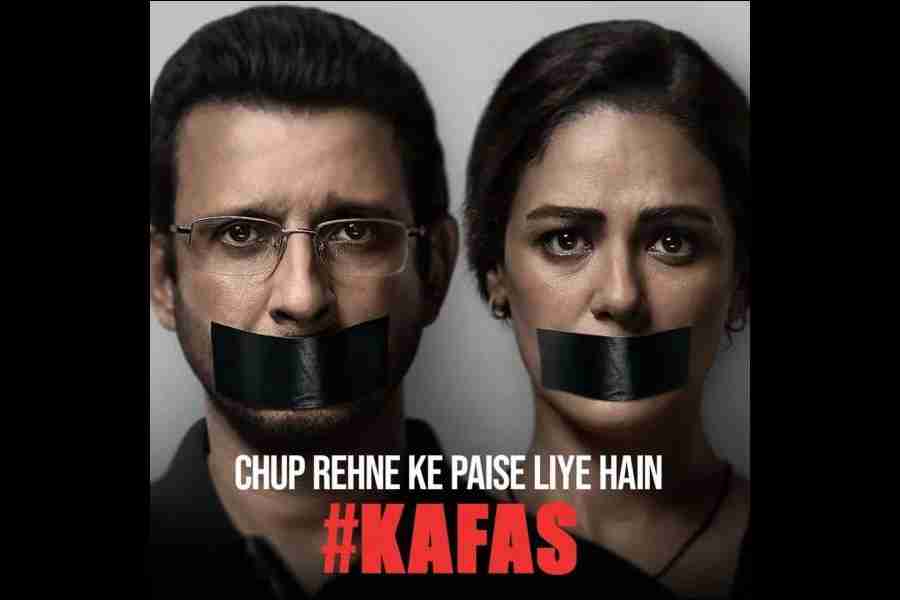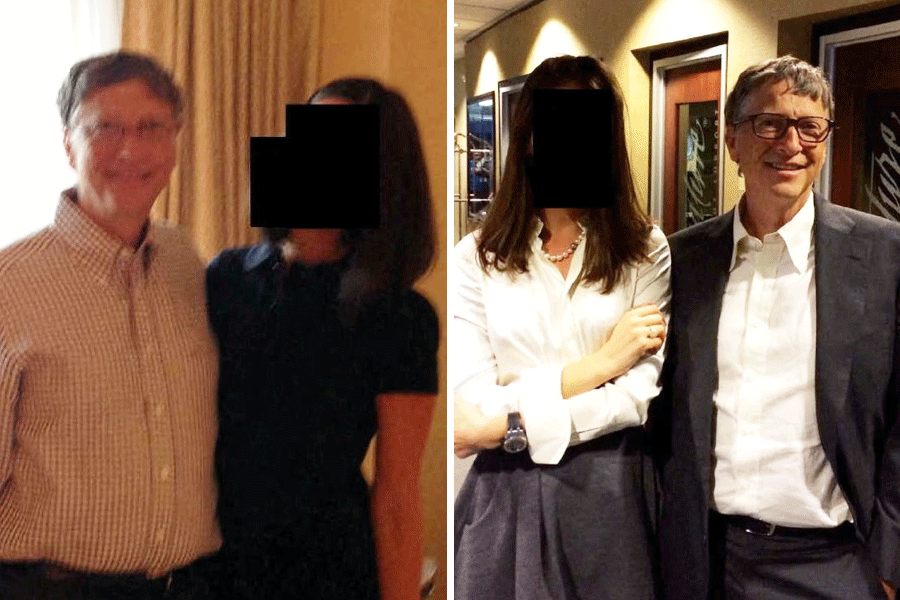Kafas will have you at hello. And by that we mean, its name. Not a widely used word, 'kafas', of Persian origin and also spelt as 'qafas', means a cage, more specifically, a coop. It's an apt name for the show. Its principal characters are all caged — some in gilded ones, most not. Some of them have been thrust into these cages, some have chosen them on their own.
Released on Friday on SonyLIV, Kafas — directed by Sahil Sangha and from the house of Applause Entertainment — centres its narrative around child molestation. A few other recent Indian shows have trained their lens on the same subject, with mixed results. Kafas is a story of dreams achieved and shattered, where everyone — even those wronged — operates in the grey. This is as much a look at the rot seeping into our family lives and social constructs as it is a cautionary tale.
The six-episode series, an adaptation of the British show Dark Money, talks about money triumphing over morality. Set in the shadow of #MeToo, Kafas glances at the underbelly of showbusiness, where a male superstar looks to buy his way out after sexually abusing his young co-star, a 15-year-old male debutant who plays his son in the film that they have just wrapped up on a foreign location.
A shaken Sunny Vashisth (played by Mikhail Gandhi) confides in his parents who are, as expected, mortified. A video shot on a cellphone backs the incident. But Raghav (Sharman Joshi), a cinema manager and Seema (Mona Singh), who works in a salon, are struggling to make ends meet even as, like many desi parents, they look towards their progeny to realise their own unfulfilled dreams. So when a huge sum of hush money makes its way to them — an amount big enough to fund a plush apartment, a bigger car, admission into a big-ticket school for Sunny and Seema's own salon — they decide to keep silent. That, over six episodes, plays out like a ticking time bomb with the Vashishth family, now better off materially but unable to meet each other in the eye, on the brink of imploding.
Kafas has a premise with promise and starts off well, with its title being exemplified by the feeling of claustrophobia that good people feel when they know that what they are doing is wrong. Triggering incidents — some organic, some deliberate — reduce Sunny to an emotional dump and the family — Raghav's wife and son from an earlier marriage are very much in the picture — finds itself on the brink of breaking up.
While Kafas has a potent story, it somehow stops short of taking the ugliness of the subject head-on. Director Sangha is satisfied with surface-level handling of what is a relevant and horrifying tale of systemic abuse, with his focus remaining on the interpersonal dynamics of the family, some of which degenerates into the kind of melodrama that undoes a lot of the good work that the series had started out with.
Long-format storytelling is a double-edged sword. In the hands of an astute maker, it allows the narrative to traverse the length, breadth and depth of a story and its characters, but always reins it in to tie up the loose ends together at culmination point. Kafas, however, is a bit of a different story. Sangha, along with writer Karan Sharma, deviates from the drama at the core, involving way too many players, all of who may or may not have a substantial contribution to the larger story. What also does Kafas a substantial amount of disservice is its almost manipulative, and often expository, dialogues.
What redeems Kafas is some of its performances. Mona Singh ably plays Seema with a mix of stubbornness and guilt, but it is Sharman Joshi who magically transforms his body language to play a man literally and metaphorically weighed down by the burden of the power struggle between truth and lies. His is a nuanced performance in a series which otherwise has acts that tend to get too dramatic and shrill, like in the case of Vivaan Bhatena playing the amoral superstar and Preeti Jhangiani as his forever smirking wife. Casting director Mukesh Chhabra, ironically, miscasts himself as a seemingly intrepid journalist.










